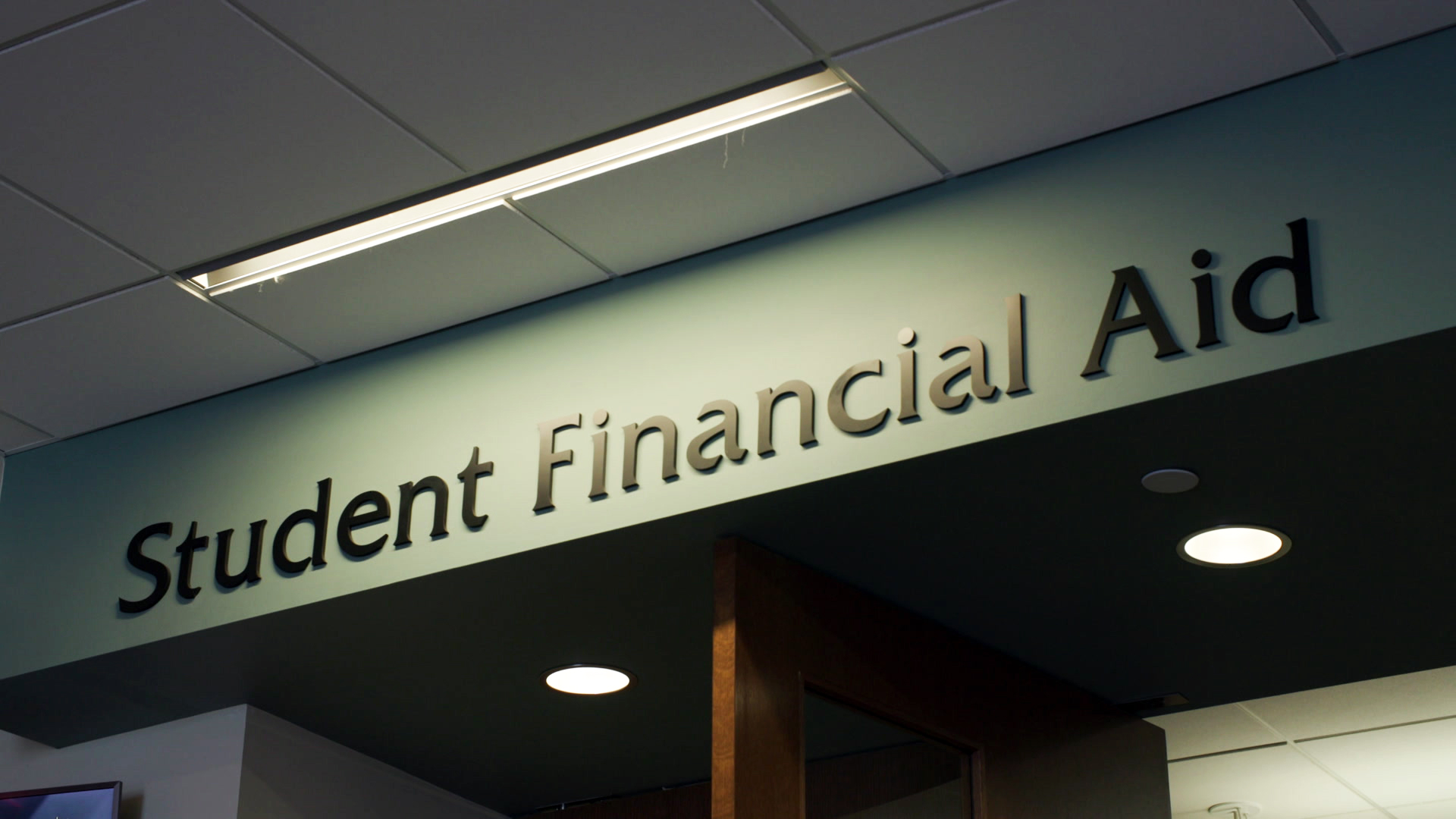Many Wisconsin schools offer or require financial literacy classes, but it’s not mandated


Ever since she was small, Brittany Ousterhout desired to be a veterinarian. She experienced a enthusiasm for horses and preferred to shell out her days all around them.
Then she ran the figures. In a money literacy training course at Milton Superior School, Ousterhout calculated the years she would commit in school, the 6-figure debt she would accumulate, and the comparatively small salary of a veterinarian.
“The math did not math for me,” she reported not too long ago soon after her change as an ultrasound technician at a clinic in Madison. “It would have taken a extensive time to pay out off.”
Ousterhout, now 24, labored comprehensive-time to place herself via local community higher education and earn an associate’s degree, which expense about $15,000, she reported. Now, she’s financial debt-cost-free and earning a sound salary.
She improved the trajectory of her daily life for many factors, not the very least of which was the selection-crunching she had accomplished in the financial literacy study course.
“That was a big issue in it,” Ousterhout explained.

Brittany Ousterhout, 24, works at a clinic in Madison as an ultrasound technician. She experienced at first desired to be a veterinarian just before she crunched the figures in a substantial faculty class in economical literacy. (Credit history: The Badger Job)
With the aid of a $10,000 grant from the state’s Division of Financial Establishments, Milton Significant Faculty created the program obligatory for all graduating seniors in 2017. It taught learners how to do issues like calculate and file their taxes, spending plan, shop for insurance and devote for the future.
Though lots of faculties all over the state also supply or call for a money literacy system, including Milwaukee Community Faculties, it is not necessary in Wisconsin. Point out legislation only involves that school districts “adopt tutorial benchmarks for economic literacy and integrate instruction in money literacy into curriculum in grades K-12.”
In the meantime, at the very least 17 states assurance, or have dedicated to guaranteeing, all large school college students acquire a standalone individual finance program of at minimum a single semester in advance of graduation, in accordance to Subsequent Gen Private Finance, a nonprofit that encourages money literacy training.
A drag on the financial system
Much more than 43 million Us citizens have federal student loan debt, according to the Education Info Initiative, an organization which aims to offer really hard figures and facts on instruction to the public. Forbes estimates all student personal loan credit card debt totals about $1.75 trillion in the U.S. A lot more than 90 percent of that credit card debt is federal university student financial loans.
Which include non-public bank loan credit card debt, the regular pupil bank loan credit card debt balance sits concerning $38,000 and $40,000, in accordance to the Education and learning Data Initiative.
That credit card debt is a drag on individuals’ futures and, normally, on area and national economies, authorities say. Pupil financial debt decreases paying out, stifles small business advancement and constricts housing markets. Some research reveals that high university student mortgage credit card debt prevents lots of Us citizens from conserving ample for retirement and from obtaining a house.
Youthful people who receive some fiscal literacy instruction frequently make better selections and realize far better results down the street, investigate implies.
Those learners are much less most likely to be delinquent on their credit, and, on average, have far better credit rating scores, said Melody Harvey, an assistant professor in the Office of Purchaser Science at UW-Madison. They also are a lot more probable to use federal financial loans instead of the a lot more high priced, personal selection, she extra.
Outside of those people advantages, Harvey’s investigation has found that pupils who get some monetary literacy instruction also are considerably less very likely to use expensive, limited-time period, “payday financial loans.” Other exploration has discovered that fiscally literate pupils are a lot more possible to pay back again their pupil loans, she mentioned.
‘Win-earn for everybody involved’
A absence of funds is a main reason educational facilities make your mind up against demanding money literacy courses, Harvey claimed. A large school probably would have to have a least of $50,000 a 12 months to go over the cost of a teacher main the course, reported Amy Kenyon, the career coordinator at Milton Significant University who aided launch the class.
Individuals at Milton High School say it is properly well worth the additional price. When tutorial planners were being considering making the program obligatory, their objective was uncomplicated, but bold.
“How can we alter the outlook of the Milton group around the upcoming 20 a long time by this course?” stated Nicholas Manogue, who developed the class with Kenyon and taught it for six decades right before shifting to Blackhawk Technical School to educate professionals on how to teach their trade. “How can we economically adjust Milton?”
When noting how politicized education has turn out to be, D. Kevin Jordahl, the current company instructor at Milton Superior Faculty, said “anyone looking at assisting prepare younger grownups for their long term would value and pick to make a course like this course materialize. I assume this would be a win-get for every person concerned.”
The point out Legislature is liable for creating variations to graduation prerequisites, reported Chris Bucher, a spokesman for the Wisconsin Division of General public Instruction. The legislature also could set aside money specifically for the class.
The challenge has been percolating.
In the earlier legislative session and again in the 2023 session, state Sen. Joan Ballweg (R-Markesan), a former 1st-quality instructor, explained she has released a invoice that would call for pupils to generate school credit in individual financial literacy to graduate.
But groups which includes the Wisconsin Affiliation of School Boards and the Wisconsin Rural Colleges Alliance manage that the measure makes an unfunded mandate, and the invoice so significantly has unsuccessful to advance.
‘Throw(ing) cash at the problem’
Sitting atop a historic, $7-billion surplus, former science teacher and college principal Gov. Tony Evers has proposed setting apart $5 million for a competitive grant plan, for which schools can use, that would fund fiscal literacy lessons.
“Our ‘Do the Math’ initiative will assist make sure our youngsters have the instruments and capabilities to make clever budgeting and monetary choices to put together for their upcoming,” the governor claimed in his State of the Condition tackle in January.
The program is involved in the Democratic governor’s two-12 months state budget proposal.
But the Republican-controlled Legislature holds the energy to compose what ever point out finances it wishes. Evers can edit it a bit, or veto the whole document.
The Legislature’s highly effective Joint Committee on Finance, which the Republican majority controls, will generate the price range about the coming months.
State Sen. Duey Stroebel (R-Saukville), a committee vice-chair, mentioned in an e-mail that, “I help economical literacy, however, I have reservations about condition curriculum mandates due to the fact I feel curriculum choices are very best created at the nearby college board stage.”
He famous the committee “is in the commencing stages of the price range-writing course of action. We have a multi-month process of community hearings, stakeholder input and responses from Caucus users, so I do not know the particulars of what will be in the long run included in the condition spending plan.”
Ballweg, also a member of the Joint Finance Committee, said in an e mail that the governor’s program “throws cash at the problem” and “does not require these significant classes to be taught.”
“While I agree that economical literacy is something that requirements to be taught to Wisconsin learners, I disagree with the actions outlined in the ‘Do the Math’ initiative,” she reported.
Asked why her bill does not fund the mandate, Ballweg responded that she is doing the job with organizations this sort of as Upcoming Gen Private Finance, banks and credit rating unions, to guidance shelling out for the courses.
She added that the state only needs 15 particular credits for substantial university graduation — courses that contain English, background, math and science.
“The addition of this half credit history will not adjust how Wisconsin colleges are funded,” she stated, including that funding for educational institutions is centered on their pupil inhabitants, not the number of courses taught.
Dan Rossmiller, governing administration relations director for the Wisconsin Affiliation of Faculty Boards, took exception with that characterization.
“The truth that Wisconsin universities are funded on their student populace indicates they get no further funding when they are mandated to supply additional required lessons, even if executing so increases their costs,” he reported in an e mail. “In other terms, a school’s funding is matched to students, not costs.”
“If a college will get new prices mandated on it (this sort of as acquiring to seek the services of a new trainer or invest in new curricular resources),” Rossmiller ongoing, “this indicates they have no additional money to cover those people fees. Primarily, they have to consider income from somewhere else in their finances to protect individuals additional fees.”
The Badger Task is a nonpartisan, citizen-supported journalism nonprofit in Wisconsin.






